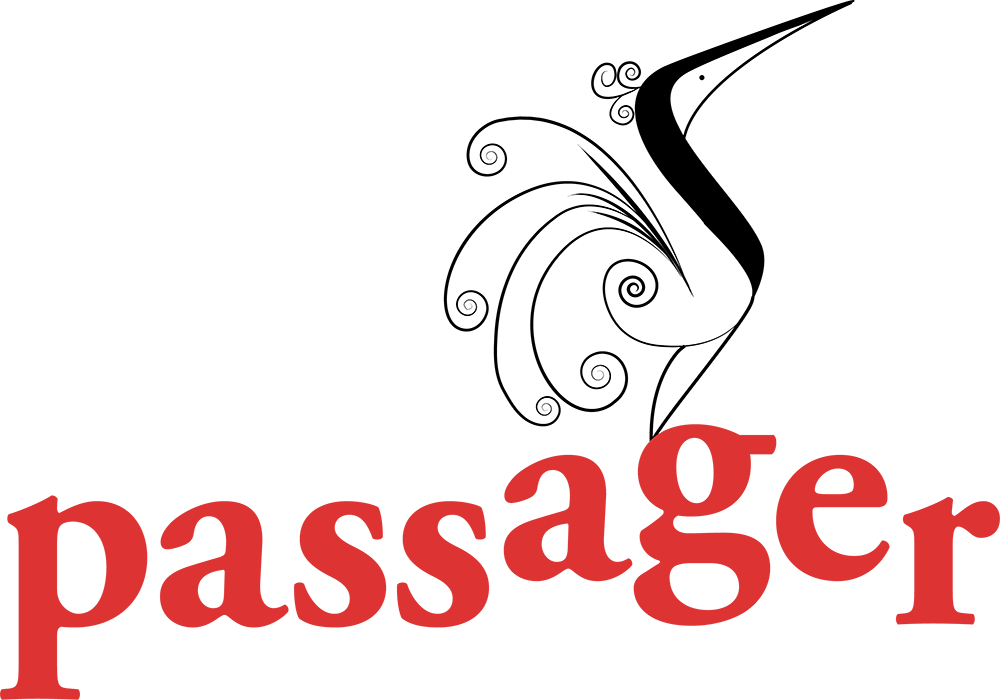Autumn


Memories of young passion, with poems by Victoria Korth and Kathy Mangan, and in honor of National Cooking Day – a poem by Ruth Mota.
7 minutes
TRANSCRIPT
High school football. For some, that means sitting in the stands rooting for your team. For others, it means making out behind the bleachers. Here’s Victoria Korth’s poem “Necking.” She said of this poem, “I was exploring the many forms of the word: as a noun with multiple meanings, some idiomatic, and as a verb. I wanted to layer these meanings . . . seeking to create a visual effect through sound.”
She barely knew him, yet they were falling
towards earth as if falling were the same
as landing on grass behind the firehouse at dusk,
his hand stretching the neck of her blue sweater
while he rubbed his cheek against her, his neck
pliable as a swan, upper body heavier
as they leaned back, his dark red sweatshirt
nearly invisible, empty bleachers an outline,
wet honeysuckle familiar, sweet.
He could have tightened fingers, rough
from summer work, squeezed as she did the neck
of her violin, he could have lifted her into his van;
a mute swan grunted softly, while he wrestled his need
to touch, and she clung on, as if to earth’s crust.
“Necking.” Victoria Korth. From Passager Issue 54.
In many parts of the country, late summer and early fall also means fresh corn season. For some, that means husking; for others, necking. Here’s Kathy Mangan’s poem “Husking Corn for Dinner, She Thinks of an Old Boyfriend.”
She tears back the green
blades – like so many rough
tongues – pinches the sticky
threads from crevices,
and lets the milky juices slick
her palms. They were nineteen,
freshmen, he was from Indiana
and worked summers de-tasseling
corn for DeKalb.
It’s dusk now
as she unzips the ears,
and she imagines him boarding
the flatbed at the company silos,
a yolk of July sun rising as they chug
out to counties called Vermillion,
Tippecanoe, Boone.
Even now she sees
him arrive at the dew-drenched fields, male
and female rows stretching in a striped
half-mile, watches him bind
himself with bandanas and rubber-
tipped gloves, and
forty years gone –
her heart squeezes as she sees him roll down
his sleeves to button at his bony,
freckled wrists. She’s now counting
the cobs as he wades into the wet
stalks. Steam rises and grasshoppers
leap at his thighs while he twists
and drops the first pollen-laden
tassels of the day.
When she visited
from the East, they’d drive the back
roads of Brown County at night
in his mint green Rambler, then park and peel
each other – all fingers and knobs
and lips – in the gummy back seat, windows
rolled down to crickets and creaking
corn, his red hair brushing her cheeks
like shafts of strawberried light,
their teeth nibbling each other
as if they were biting into tight
kernels to burst the sugar.
Kathy Mangan’s poem “Husking Corn for Dinner, She Thinks of an Old Boyfriend” from her book Taproot.
At least tangentially related to corn on the cob, September 25 is National Cooking Day—who knew! To commemorate it, Ruth Mota’s poem “Women Cooking Chicken.”
How unlike the chicken of my youth these skinless thighs and breasts
severed and tightly wrapped in cellophane, labeled organic and cage-free.
Spared the sight of blood and scent of ripened flesh,
I need nothing but a quick hot-wash to plop my pullet in the pan.
At thirteen, my first chicken came without a pedigree,
blanketed in plain pink paper from Ducca’s Butcher Shop,
I stood confronted by a whole chicken, except for head and feet
and the pulled feathers that left her skin erupting just like mine.
I laid her naked on her back across the cutting board,
shoved my hand through the viscous hole between her legs
to retrieve her heart, her twisted neck, whatever giblets were.
My mother put me to this task without instruction,
so my blade landed dull false cuts before I clipped her joints,
divided up the body parts I dusted and dunked in sizzling oil.
So many millions of women in the world
have washed the fetid fat of chicken from their fingers.
I once saw a sugar-cane farmer’s wife on a plantation in Brazil
chase a chicken with her machete, slit its throat.
She wrapped her own legs, ribboned with purple veins,
around a bucket of scalding water to pluck its feathers.
That tough old hen who pecked for scratch
will never sizzle in a frying pan, but boil for hours
to flavor soup to feed a dozen children,
beak and claws afloat, yesterday’s bread sopping up her juice.
As I lay my platter down now upon my table, and watch
my daughters’ greasy fingers fiddle with crispy thighs and breasts,
I wonder how, when they are women, they will relate to chickens?
Will they find it too grotesque to touch such flesh, let alone consume it?
Or will a uniformed woman wrapping in a factory
make their slaughtered poultry palatable?
“Women Cooking Chicken” by Ruth Mota, from Passager’s 2018 poetry contest issue.
To buy Kathy Mangan’s book Taproot or to subscribe to or learn more about Passager and its commitment to writers over 50, go to passagerbooks.com. You can download Burning Bright from Spotify, Apple and Google Podcasts, and various other podcast apps.
For Kendra, Mary, Christine, Rosanne, and the rest of the Passager staff, I’m Jon Shorr.



